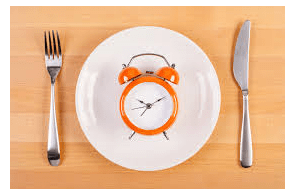Cancer and Fasting
April 25, 2017 | Author: Mauris Emeka
In the early part of the last century, before the extensive use of pharmaceutical drugs, fasting played a vital role in healing. The process of fasting has long been considered a useful way of cleansing and recharging the body to enhance the body’s own healing power – and this idea has been supported by extensive research. Now, within the last five years or so, a concept known as intermittent fasting has garnered increasing interest as a way to help overcome cancer.
What is Intermittent Fasting?
Intermittent fasting involves establishing a routine of eating for only a short period of time during the day, and abstaining from eating for the rest of the day. For example, a commonly practiced routine is to eat lunch at 12:30 or 1:00 pm and eat dinner later that day at around 5:30 pm. Then avoid eating until the next afternoon at 1:00 pm, and that will complete an 18 to 19 hour fast.
Following such a routine for several days makes it difficult for cancer cells to thrive, plus it carries other anti-cancer benefits such as detoxification. Extensive research reveals that cancer cells need food in the form of glucose energy every single minute of the day; if they do not have access to their food minute by minute they lose their vitality, and many of them will eventually die.
Professor Valter Longo of the University of Southern California is quoted as saying,”…by undergoing a fasting-mimicking diet, you are able to let the body use sophisticated mechanisms able to identify the bad but not the good cells in a natural way.”
Dr. David Jockers, an accomplished chiropractic physician, notes that one of the benefits of intermittent fasting is to normalize insulin within the body – and insulin is a powerful promoter of cancer cell growth. He also points out that fasting reduces inflammation and oxidative stress – two major contributing factors to cancer growth.
Research also shows that fasting increases tumor-killing T-cells and helps strip away the protective covering from cancer cells; that enables the immune system to recognize cancer cells and target them for destruction.
Dr. Thomas Seyfried, Professor of Biology at Boston College, who has studied cancer cells extensively, has presented proof that some cancer cells can be destroyed with five to 10 day intermittent fasting when consuming a ketogenic diet.
What is a Ketogenic Diet?
A ketogenic diet produces ketones in the body instead of glucose. Ketones are the breakdown product of fatty acids as an alternative energy source — nutrients that normal cells can make good use of, but cancer cells are unable to use. Cancer cells can only thrive on glucose energy, whereas normal cells function fine with either glucose or ketones.
Ketogenic diets exclude simple carbohydrates, i.e. foods that quickly convert to glucose. Examples of simple carbohydrates are white rice, white bread, white flour, white sugar, brown sugar, and pasta. The ideal ketogenic diet should be rich in healthy fats, including unrefined virgin coconut oil, virgin olive oil, avocados, and various raw nuts, while excluding commonly used processed, refined and hydrogenated oils. It should also contain moderate amounts of protein from wild fish, eggs, and plant proteins, as well as generous portions of fresh fruits and vegetables (especially deep green vegetables). More examples of ketogenic foods can be found at https://www.ruled.me/ketogenic-diet-food-list/
[Editor’s Note: Although the foods listed at this site are mostly acceptable, I disagree with their statement that “Most dairy is fine, but make sure to buy full-fat dairy items [especially] harder cheeses….”].
The Bottom Line
Intermittent fasting on its own can be a big help against cancer. Add a ketone-promoting diet to the fasting routine and the body’s own healing power increases considerably. Fortunately, this age-old fasting procedure is completely safe, non-toxic, and easy to implement, and produces no unwanted side effects. The number of days to fast intermittently depends on how far a particular cancer condition has advanced.
[Editor’s Note: Patients who are severely nutritionally depleted should not engage in any type of fasting unless medically supervised. For these patients, very frequent mini-meals of freshly expressed vegetable juices, blenderized drinks of plant-based protein powders and greens, and raw plant-based dishes (such as those in Hungry for Health are much safer and more effective. ]
Join the conversation. Create a topic in our forum.
Mauris Emeka has authored and published two books about cancer and nutrition, Cancer’s Best Medicine and Fear Cancer No More. His website is cancernomore.com.
References:
[1] Seyfried T. Water fasts as a potential tactic to beat cancer (YouTube.com) https://www.youtube.com/watch?v=fXWE8vQB0eA
[2] https:/news.usc.edu/63669/fasting-triggers-stem-cell-regeneration-of-damaged-old-immune-system
[3] http://www.sciencedaily.com/releases/2012/02/120208152254.htm
